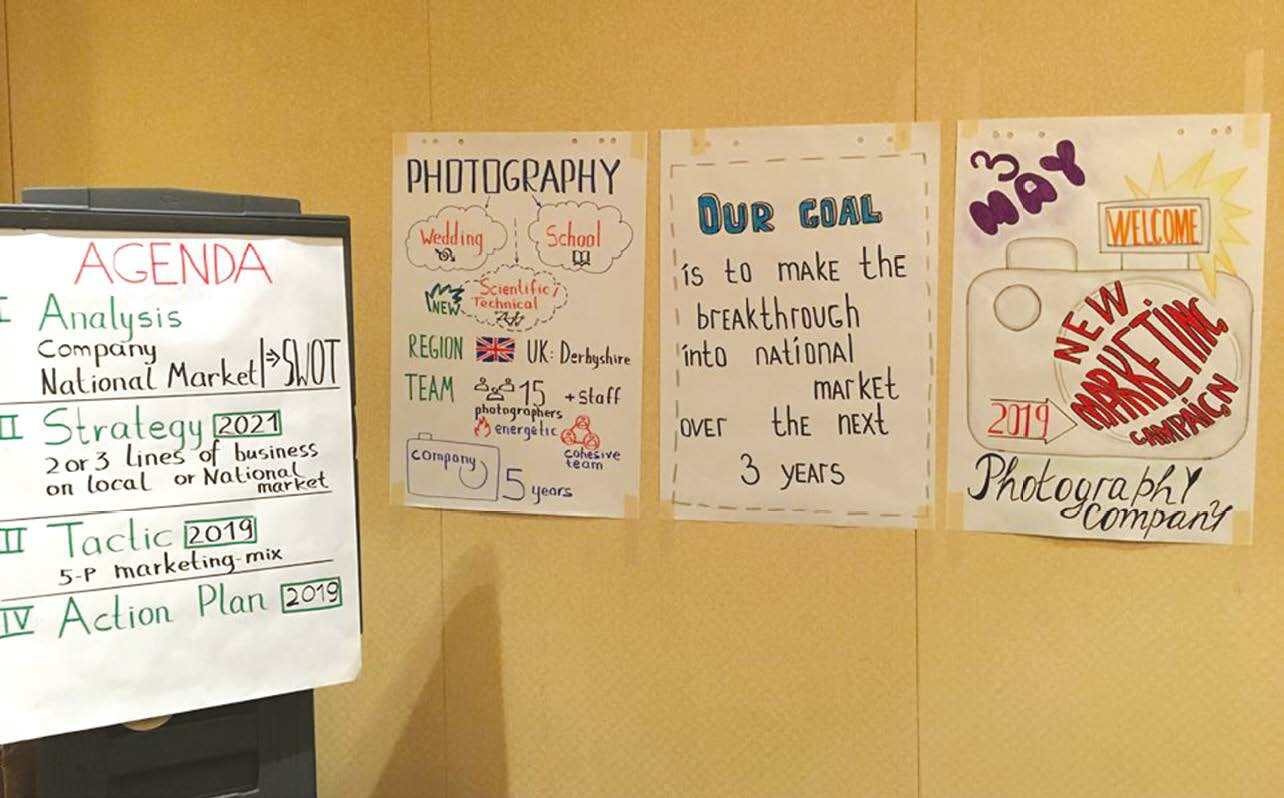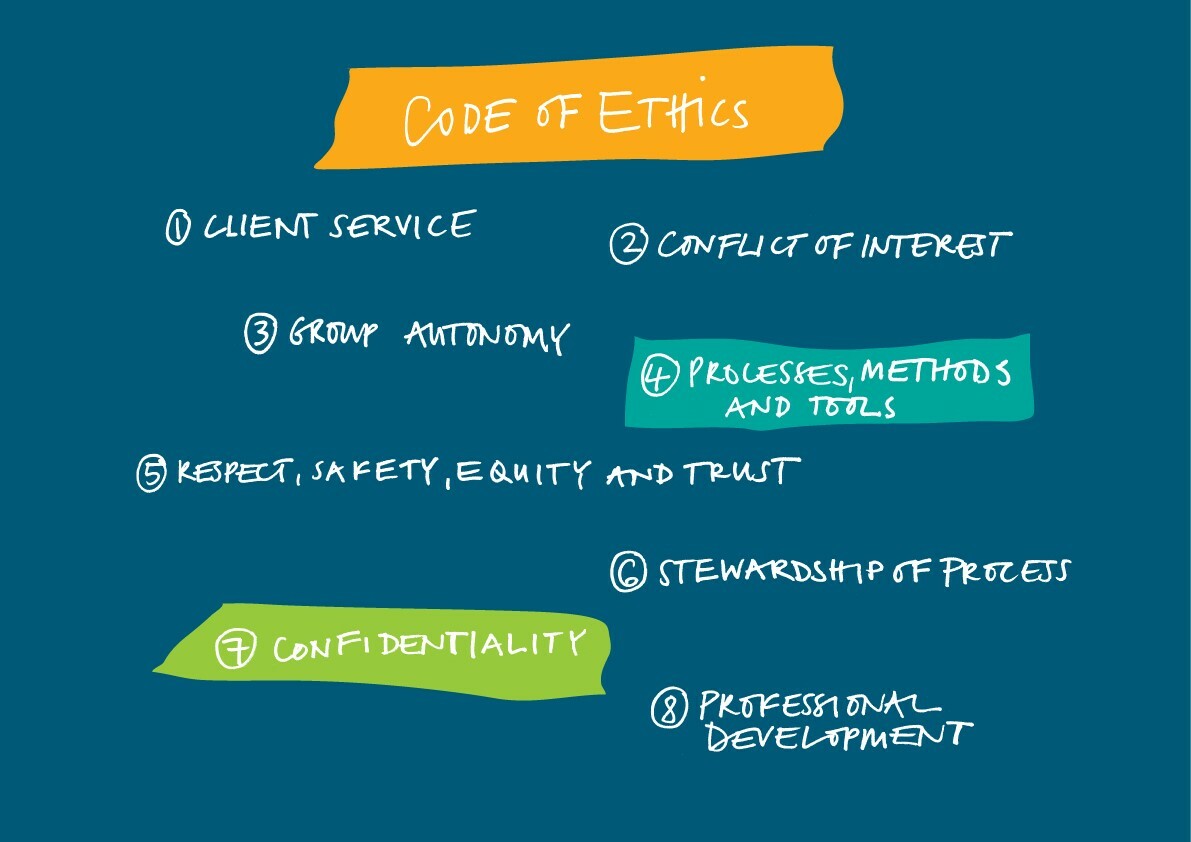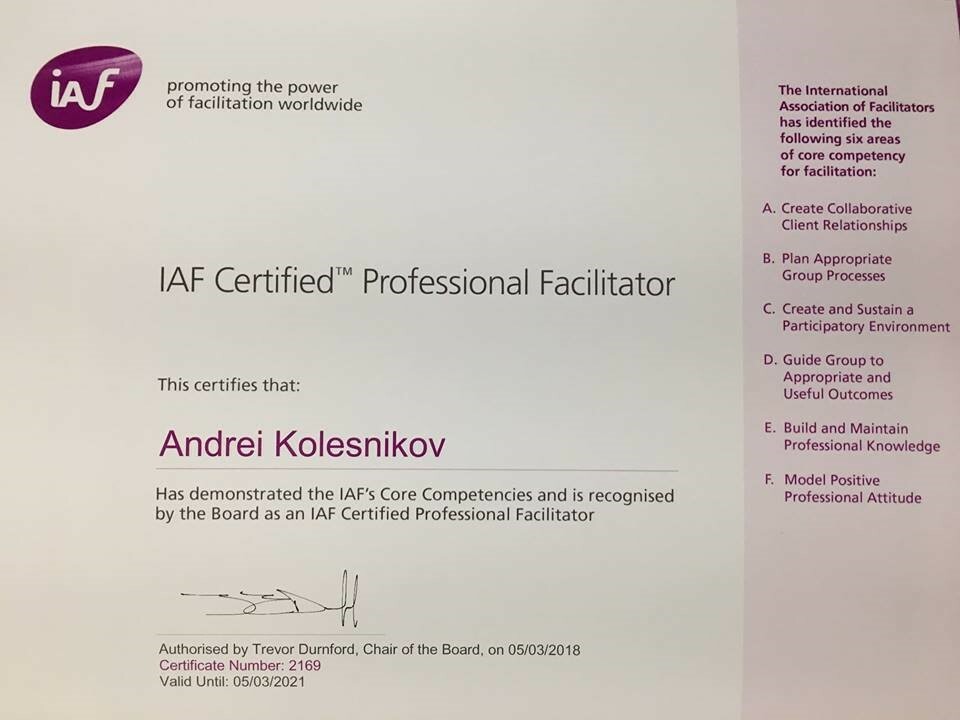For any product or service user a certificate means quality and compliance with a certain level. Facilitators are no exception. When choosing a facilitator in any country around the world European and US companies will pay attention to whether he or she has this «high quality and level credentials», in other words, whether he or she is professionally certified. Certified ™ Professional Facilitator (CPF) held by the International Association of Facilitators (IAF) is the most significant certification for professional facilitators that is recognized worldwide and guarantees high level and mastery of the specialist.
The profession of a facilitator is relatively new in Russia, and so far an international certificate has not been widely adopted. But for specialists from Russia, certification is an opportunity to declare oneself at the international level, an opportunity to evaluate oneself as a specialist, to get feedback from professionals with ten years of experience, to enter the international community and to develop within the framework of high standards.
CPF CERTIFICATION. EXTRAMURAL /HOME/STAGE
CPF certification consists of two stages: remote one and the one conducted in person.
It is advisable to start training for certification at least six months beforehand. Then you can follow your own pace, exempt of stress and strict deadlines. An Assessor - facilitator, who already has a CPF IAF certificate and extensive experience in facilitating diverse projects, is assigned to everyone willing to be certified. The Assessor conducts a primary remote interview with the applicant, guides the preparation process and offers a case for defense. The case is solved independently. Case solution is the ground for the following ‘in person’ stage of the assessment. The submitted documentation requires a detailed description of facilitator work experience using the example of at least 7 sessions. One of them must be deconstructed and presented in greater detail.
Except experience and education the facilitator must demonstrate six core facilitator competencies and show a deep understanding of IAF ethics.

ETHIC RULES A FACILITATOR SHOULD FOLLOW
Facilitator ethics embraces a code of moral rules that a facilitator is committed to know and follow. The IAF adopted Code of Ethics in 2004 and it is recognized by IAF members worldwide. We have translated it into Russian and are willing to share it with you.

1. CLIENT SERVICE
We are in service to our clients, using our group facilitation competencies to add value to their work. We work closely with our clients to understand their expectations so that we provide the appropriate service, and that the group produces the desired outcomes. It is our responsibility to ensure that we are competent to handle the intervention. If the group decides it needs to go in a direction other than that originally intended by either the group or its representatives, our role is to help the group move forward, reconciling the original intent with the emergent direction.
2. CONFLICT OF INTEREST
We openly acknowledge any potential conflict of interest. Prior to agreeing to work with our clients, we discuss openly and honestly any possible conflict of interest, personal bias, prior knowledge of the organisation or any other matter which may be perceived as preventing us from working effectively with the interests of all group members. We do this so that, together, we may make an informed decision about proceeding and to prevent misunderstanding that could detract from the success or credibility of the clients or ourselves.
3. GROUP AUTONOMY. WE RESPECT THE CULTURE, RIGHTS AND AUTONOMY OF THE GROUP
We seek the group's conscious agreement to the process and their commitment to participate. We do not impose anything that risks the welfare and dignity of the participants, the freedom of choice of the group, or the credibility of its work.
4. PROCESS, METHODS AND TOOLS. WE USE PROCESSES, METHODS AND TOOLS RESPONSIBLY
In dialogue with the group or its representatives we design processes that will achieve the group's goals, and select and adapt the most appropriate methods and tools. We avoid using processes, methods or tools with which we are insufficiently skilled, or which are poorly matched to the needs of the group.
5. RESPECT, SAFETY, EQUITY AND TRUST
We strive to engender an environment of respect and safety where all participants trust that they can speak freely and where individual boundaries are honoured. We use our skills, knowledge, tools, and wisdom to elicit and honour the perspectives of all.
6. STEWARDSHIP OF PROCESS. WE PRACTICE STEWARDSHIP OF PROCESS AND IMPARTIALITY TOWARD CONTENT
While participants bring knowledge and expertise concerning the substance of their situation, we bring knowledge and expertise concerning the group interaction process. We are vigilant to minimize our influence on group outcomes.
7. CONFIDENTIALITY. WE MAINTAIN CONFIDENTIALITY OF INFORMATION
We observe confidentiality of all client information. Therefore, we do not share information about a client within or outside of the client's organisation, nor do we report on group content, or the individual opinions or behaviour of members of the group without consent.
8. PROFESSIONAL DEVELOPMENT
We are responsible for continuous improvement of our facilitation skills and knowledge. We continuously learn and grow. We seek opportunities to improve our knowledge and facilitation skills to better assist groups in their work.
IN PERSON STAGE
The in-person stage (The Assessment Day) may take place in any country of the world, where there is an IAF office. The in-person stage consists of three parts: the Initial Candidate Interview, the Facilitation Demonstration of a prearranged case and the Final Candidate Interview.
The Initial Interview is 30 minutes in duration and is caried out by two Assessors. Then each candidate designs a 30-minute facilitation with a group comprised of other candidates and some members of the assessor team. In the end Assessors conduct a 30 minute Final Interview with the candidate, so that the candidate reflects on session success and their impressions.
Coming through all the stages does not ensure getting a certificate, but it guarantees invaluable professional experience and qualified feedback from masters with decades of successful track record.
In May 2018, Andrey Kolesnikov, the managing owner of PowerLexis, received a CPF certification for a period of three years. Currently there are only five professionals in Russia with international standing. Andrei Kolesnikov’s Assessor was Lindsey Summer from England, who received the CPF in 1999. Andrei Kolesnikov was part of a group of 5 facilitators (two from Canada, two from the USA and one from Russia) assessed on the Assessment Day in Canada. Assessors represented England, Italy, Canada, China Singapore. 3 people out of 5 passed.

CREATE COLLABORATIVE CLIENT RELATIONSHIPS:
1. Develop working partnerships:
- • Clarify mutual commitments;
- • Develop consensus on tasks, deliverables, roles & responsibilities;
- • Demonstrate collaborative values and processes such as in c o-facilitation.
2. Design and customize applications to meet client needs:
• Analyse organisational environment;
- • Diagnose client need;
- • Create appropriate designs to achieve intended outcomes;
- • Predefine a quality product & outcomes with client.
3. Manage multi-session events effectively:
• Contract with client for scope and deliverables;
- • Develop event plan;
- • Deliver event successfully;
- • Assess or evaluate client satisfaction at all stages of the event or project.
PLAN APPROPRIATE GROUP PROCESS:
1. Select clear methods and processes that:
- • Foster open participation with respect for client culture, norms and participant diversity;
- • Engage the participation of those with varied learning or thinking styles;
- • Achieve a high quality product or outcome that meets the client needs.
2. Prepare time and space to supoort group process:
- • Arrange physical space to support the purpose of the meeting;
- • Plan effective use of time;
- • Provide effective atmosphere and drama for sessions.
CREATE AND SUSTAIN PARTICIPATORY ENVIRONMENT:
1. Demostrate effective participatory and interpersonal communication skills:
- • Apply a variety of participatory processes;
- • Demonstrate effective verbal communication skills;
- • Develop rapport with participants;
- • Practice active listening;
- • Demonstrate ability to observe and provide feedback to participant.
2. Honour and recognise diversity, ensuring inclusiveness:
- • Encourage positive regard for the experience and perception of all participants;
- • Create a climate of safety and trust;
- • Create opportunities for participants to benefit from the diversity of the group;
- • Cultivate cultural awareness and sensitivity.
3. Manage group conflict:
- • Help individuals identify and review underlying assumptions;
- • Recognise conflict and its role within group learning / maturity;
- • Provide a safe environment for conflict to surface;
- • Manage disruptive group behaviour;
- • Support the group through resolution of conflict.
4. Evoke group creativity:
- • Draw out participants of all learning/thinking styles;
- • Encourage creative thinking;
- • Use approaches that best fit needs and abilities of the group;
- • Stimulate and tap group energy.
GUIDE GROUP TO APPROPRIATE AND USEFUL OUTCOMES:
1. Guide the group with clear methods and processes:
- • Establish clear context for the session;
- • Actively listen, question and summarise to elicit the sense of the group;
- • Recognise tangents and redirect to the task;
- • Manage small and large group process.
2. Facilitate group self-awareness about its task:
- • Vary the pace of activities according to needs of group;
- • Identify information the group needs, and draw out data and insight from the group;
- • Help the group synthesise patterns, trends, root causes, frameworks for action;
- • Assist the group in reflection on its experience.
- • Use a variety of approaches to achieve group consensus;
- • Adapt processes to changing situations and needs of the group;
- • Assess and communicate group progress;
- • Foster task completion.
BUILD AND MAINTAIN PROFESSIONAL KNOWLEDGE:
Manatain a base of knowledge and be knowledgeable in management, organisational systems and development, group development, psychology, and conflict resolution;
1. Understand dinamics of change;
2. Understand learning/thinking theory;
3. Know a range of facilitation methods:
- • Understand problem solving and decision-making model;
- • Understand a variety of group methods and techniques;
- • Know consequences of misuse of group methods;
- • Distinguish process from task and content;
- • Learn new processes, methods, & models in support of client’s changing/emerging needs.
4. Maintain professional standing:
- • Engage in ongoing study / learning related to our field;
- • Continuously gain awareness of new information in our profession;
- • Practice reflection and learning;
- • Build personal industry knowledge and networks;
- • Maintain certification.
MODEL POSITIVE PROFESSIONAL ATTITUDE:
1. Practice self-assessment and self-awareness:
- • Reflect on behaviour and results;
- • Maintain congruence between actions and personal and professional values;
- • Modify personal behaviour / style to reflect the needs of the group;
- • Cultivate understanding of one’s own values and their potential impact on work with clients.
2. Act with integrity:
- • Demonstrate a belief in the group and its possibilities;
- • Approach situations with authenticity and a positive attitude;
- • Describe situations as facilitator sees them and inquire into different views.
3. Trust group potential and model neutrality:
- • Honour the wisdom of the group; Encourage trust in the capacity and experience of others;
- • Vigilant to minimise influence on group outcomes;
- • Maintain an objective, non-defensive, non-judgmental stance.